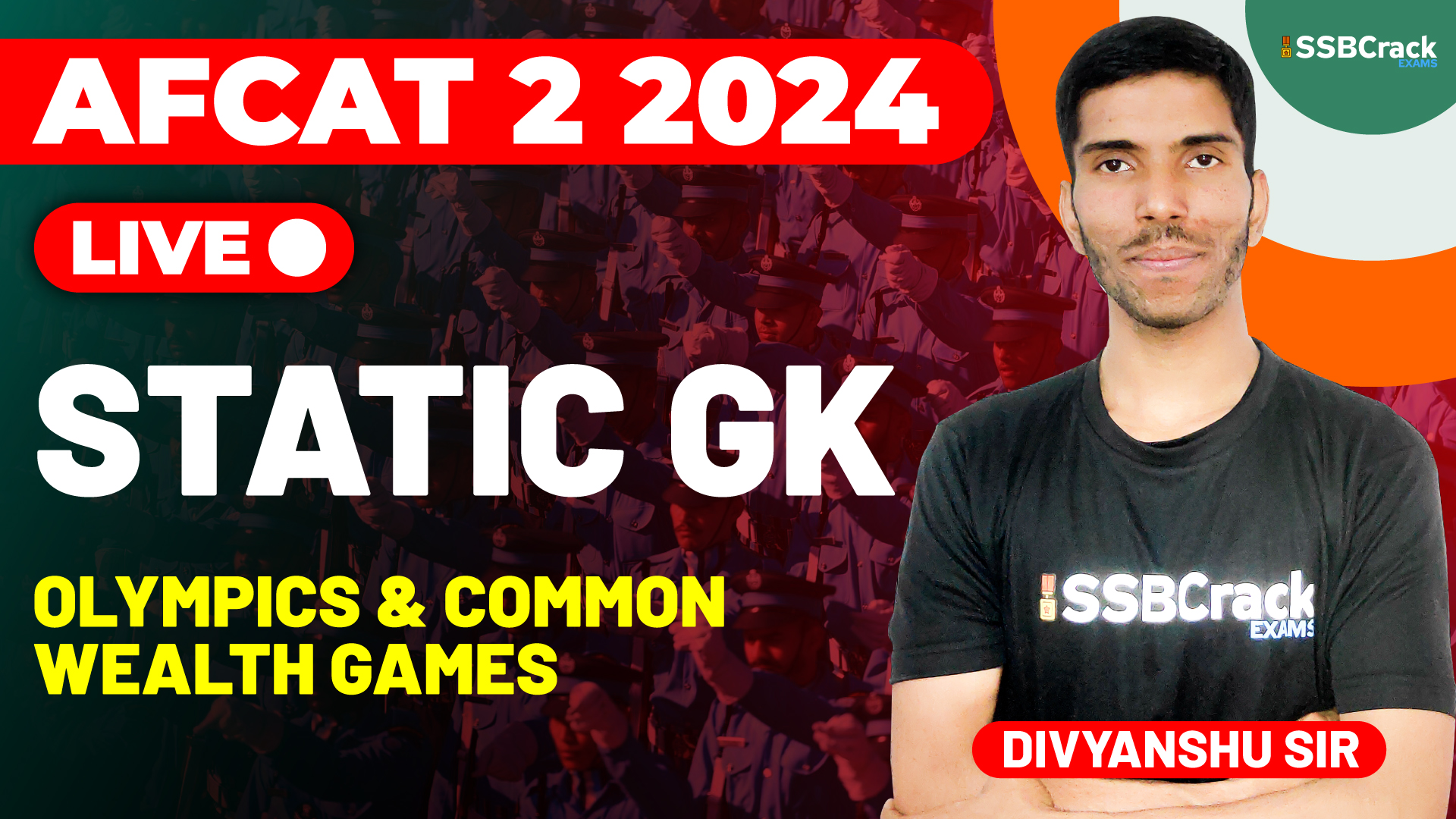The Olympics and Commonwealth Games are two of the most prestigious multi-sport events in the world, showcasing the highest level of athletic prowess and sportsmanship. For AFCAT 2 2024 aspirants, a comprehensive understanding of these events, their history, key moments, and India’s performance is crucial for acing the static GK section. This article provides an in-depth look at the Olympics and Commonwealth Games, focusing on their significance and India’s contributions.
AFCAT 2 2024 Exam Olympics & Commonwealth Games
The Olympics
Overview
- History: The modern Olympic Games were revived in 1896 by Baron Pierre de Coubertin in Athens, Greece. The Olympics are held every four years, alternating between the Summer and Winter Games.
- Symbols: The Olympic rings, the Olympic flame, and the motto “Citius, Altius, Fortius” (Faster, Higher, Stronger) symbolize the unity and competitive spirit of the games.
Key Moments
- 1896 Athens Olympics: The first modern Olympics featured 241 athletes from 14 nations competing in 43 events.
- 1936 Berlin Olympics: Known for Jesse Owens’ four gold medals, showcasing racial equality.
- 1968 Mexico City Olympics: Famous for the Black Power salute by Tommie Smith and John Carlos.
- 1972 Munich Olympics: Remembered for the tragic terrorist attack.
- 1980 Moscow Olympics & 1984 Los Angeles Olympics: Marked by boycotts due to political tensions.
India’s Participation
- Debut: India first participated in the 1900 Paris Olympics, with Norman Pritchard winning two silver medals in athletics.
- Field Hockey Dominance: India won its first gold medal in 1928 in field hockey and continued to dominate the sport, winning eight gold medals until 1980.
- Individual Achievements:
- Abhinav Bindra: Won India’s first individual gold medal in shooting at the 2008 Beijing Olympics.
- Mary Kom: Won a bronze medal in boxing at the 2012 London Olympics.
- P.V. Sindhu: Won silver in badminton at the 2016 Rio Olympics and bronze at the 2020 Tokyo Olympics.
- Neeraj Chopra: Won gold in javelin throw at the 2020 Tokyo Olympics.
Notable Performances
- 2020 Tokyo Olympics: India’s best performance with a total of 7 medals – 1 gold, 2 silver, and 4 bronze.
The Commonwealth Games
Overview
- History: The Commonwealth Games, also known as the Friendly Games, began in 1930 in Hamilton, Canada. They are held every four years, featuring athletes from the Commonwealth of Nations.
- Features: Unlike the Olympics, the Commonwealth Games include sports that are popular in member countries, such as netball, lawn bowls, and rugby sevens.
Key Moments
- 1930 Hamilton Games: The inaugural games featured 11 countries and 400 athletes.
- 1954 Vancouver Games: Known for the “Miracle Mile” race between Roger Bannister and John Landy.
- 2010 Delhi Games: Marked India’s most successful performance, winning 101 medals.
India’s Participation
- Debut: India first participated in the 1934 London Games.
- Key Achievements:
- Wrestling and Shooting: India has traditionally performed well in wrestling and shooting, winning numerous medals.
- Badminton: Indian shuttlers like Saina Nehwal and P.V. Sindhu have consistently won medals.
- Weightlifting: India has also excelled in weightlifting, with several athletes winning gold medals.
Notable Performances
- 2010 Delhi Games: India finished second in the medal tally with 38 gold, 27 silver, and 36 bronze medals.
- 2018 Gold Coast Games: India won 66 medals, finishing third in the medal tally.
Conclusion
Understanding the Olympics and Commonwealth Games is essential for AFCAT aspirants as it broadens their general knowledge and prepares them for the static GK section of the exam. These events highlight the spirit of competition, unity, and excellence in sports. India’s remarkable performances in these games serve as a source of inspiration and pride, showcasing the country’s growing prowess in the global sporting arena. Keep this guide handy to stay updated with key facts and achievements related to the Olympics and Commonwealth Games, ensuring a strong performance in your AFCAT 2 2024 exam.








